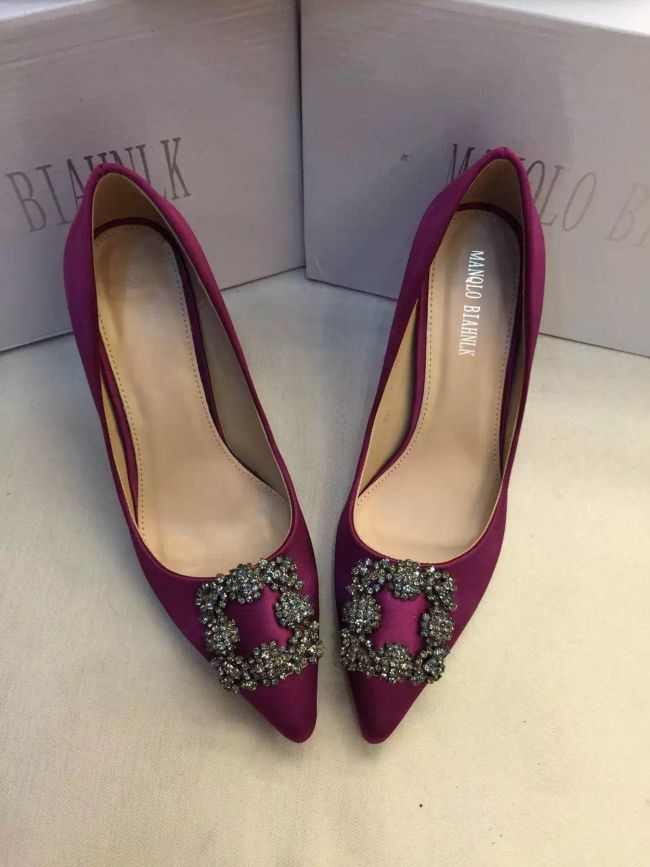A great deal has been written about the Manolo Blahnik trade mark case in China, but in case you missed it (perhaps you're more of a Clarks person) here's a heads-up!
Manolo Blahnik
Fashionistas will certainly be familiar with the name Manolo Blahnik. This UK-based luxury footwear brand has been famous since the 1970s. Named after its Spanish founder, the company manufactures very expensive footwear, shoes that are much beloved by celebrities. Manolo Blahnik shoes famously had a starring role in the TV series Sex and the City, adorning the feet of Carrie Bradshaw (Jessica Sarah Parker).

Source: Wikimedia Commons
China – first-to-file
Until recently, Manolo Blahnik was excluded from the huge and very lucrative Chinese market. That's because the trade mark Manolo Blahnik was registered for footwear in that country: not by the British company you understand, but by a Chinese individual, Fang Yozhou.
This trade mark registration goes back to the year 1999. China was a very different place in those days – you may recall that a great deal of trade mark squatting happened when China first opened up to the rest of the world. China's trade mark policy is one of first-to-file, in other words, the earliest application goes through to registration, even if there is a later application which has more merit. In many other countries, including South Africa, the policy is first-to-use.
Bad faith becomes a thing
But Manolo Blahnik did not give up, it persisted, and it recently achieved a major success – it won a very important court case at the Supreme People's Court of the People's Republic of China. This success could not have happened if China had not introduced significant changes to its trade mark law a few years back – these changes were brought about as a result of the fact that China's National Intellectual Property Administration decided that it needed to transform the country's IP in order to make China an IP powerhouse.
The change that so greatly helped Manolo Blahnik was one that now allows a trade mark owner to challenge a trade mark application or registration that was filed by someone who is not the genuine owner of the mark. Bad faith applications in other words. The court here issued an order invalidating Fang Yozhou's 1999 registration for Manolo Blahnik.
A very important victory indeed. Especially if you bear in mind that Manolo Blahnik had been barred from operating in the Chinese market for more than 20 years.
Manolo Blahnik is now making all the right noises. CEO Kristina Blahnik described the judgment as a "meaningful victory for my uncle, our family and team... I want to express gratitude to the Supreme People's Court of the People's Republic of China for its thorough and careful consideration of our long-standing case."
She added, "We have always admired the rich cultural heritage of China and its people and we look forward with excitement to joining its dynamic future by Manolo's story, creations and passions. Manolo Blahnik will continue to vigorously protect its trademarks worldwide in the interests of my uncle Manolo, our customers, and our business."
What's next?
The company has intentions to start selling shoes in China in the near future. This will benefit Chinese consumers, because until now China's well-heeled could only buy genuine Manolo Blahnik shoes online. Unless, of course, they were prepared to hop off to destinations like Hong Kong, Japan, Malaysia, Singapore, South Korea and perhaps even Taiwan.
Lessons for trade mark owners
Manolo Blahnick is certainly not the only company that was stopped by bad-faith trade mark faith applications in China: other companies that experienced this include New Balance, Jordan, Dunhill and Dries Van Noten. The IP legislative changes in China have opened up access to its huge market and have made it more accessible.
Any other lessons for brand owners? File early is always good advice, as is this: don't give up, even if, like Manolo Blahnik, it does take you 22 years to get the result you want!
The content of this article is intended to provide a general guide to the subject matter. Specialist advice should be sought about your specific circumstances.

